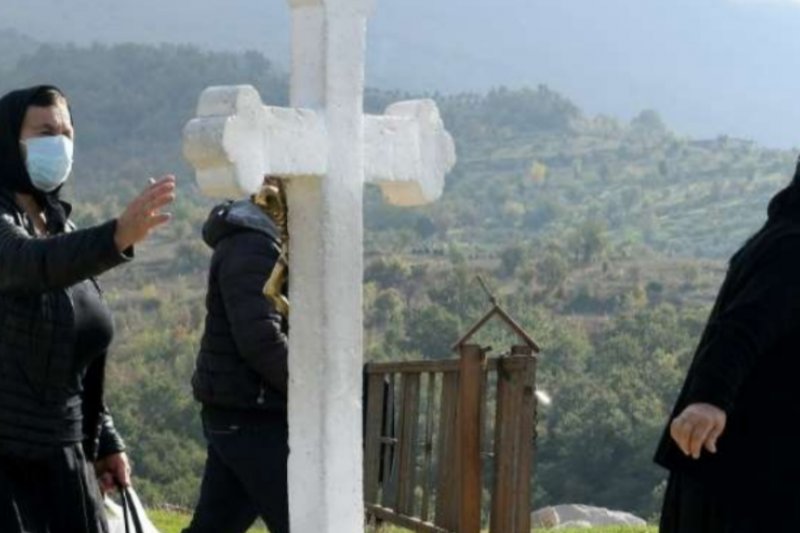Albanians Seek Luck, Hope, Health at Shrines amidst Coronavirus
The French media "TV5Monde" has dedicated an article to the superstitions of Albanians about religious or pagan practices. The article mentions the Church of St. Anthony in Lac and the tekke in Valias, Tirana, mentioning the garlic and bears placed in new houses to ward off the "evil eye". The article explains the religious tolerance of Albanians and the history of how religion was banned in Albania.
Despite the pandemic, many pilgrims flock to St. Anthony’s Church on top of a mountain in Lac. Believers or atheists, Muslim or Christian, all seek solace, perhaps even a miracle, to alleviate their anxiety.
With the coronavirus that engulfed Albania and the world, more people than ever have gone to find peace in this country where God is the same for all.
In this small country in the Balkans, the boundaries between religions are porous, paganism is never far away, superstitions and legends abound. At the top of the mountain that overlooks the town of Lac, in the north-west of the country, the church "Saint Anthonyâ€, so named because the priest "Antoine of Padova" stood in a nearby cave, has attracted pilgrims for centuries.
Everyone believes in the miracle that can change their lives.
They light candles to fulfill their wishes, put clothes on sick children in the hope of healing, leave pictures of their loved ones to attract good luck. Beyond bodily pain, they want to heal their souls. People come to this holy place to seek solutions to their illnesses and to get rid of their fear of a pandemic," said priest Mirash Ivanaj.
Many people, such as 20-year-old Ada Zdrava, have visited this place for the first time. She wants the church to "ease her anxieties" and increase the happiness of her family.
Albania and its 2.8 million inhabitants have long lived under a harsh communist dictatorship, which had turned atheism into a dogma by banning all religious practices and all forms of belief. On the eve of the fall of the regime in 1991, the country restored its religious traditions of tolerance. A majority of Muslims live alongside large Catholic and Orthodox minorities, share religious holidays, and have no problems even with mixed marriages.













